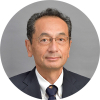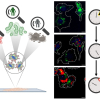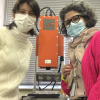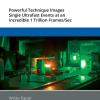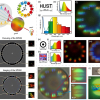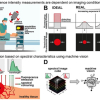Professor Abdul Mouazen specialises in proximal soil sensing for precision agriculture and environmental applications, and is a holder of a patent fora mobile soil sensor that can analyse the composition of the soil by means of infrared spectroscopy. During his past nine-years employment by Cranfield University (UK), several pioneering precision agriculture applications of this innovative sensor were achieved.
At the start of 2017 he took up his new position at the faculty of Bioscience Engineering at Ghent University, where he will carry out a project titled: “Towards Establishing a Centre of Site-specific Technology for Soil and Crop Management” (SiTeMan). The aim of the project is to establish a research platform combining cutting-edge soil and crop sensors, modelling and system control technology for managing farm resources site-specifically, with the final goal of establishing a precision agriculture centre in Flanders.
Professor Mouazen said: “Precision agriculture is a relatively new approach in crop production that relays on advanced technologies to manage within field variability by applying the right amount of farm input in the right place and time. It has been proven to increase crop production sustainably and improve food quality while reducing environmental contamination and waste.”
Professor Mouazen will also teach a brand new course in precision agriculture at Ghent University.
“Employees with knowledge on precision agriculture are highly demanded on farms,” said Professor Marc Van Meirvenne, dean of the faculty of Bioscience Engineering, where Professor Mouazen currently is appointed. “Nevertheless, not many universities offer courses on precision agriculture in Belgium. We are happy we can supply this course now at Ghent University.”
The SiTeMan project total budget is 3,500,000 euros, sponsored by the Research Foundation Flanders (FWO) under the Odysseus programme, which aims at attracting top scientists by providing start-up funding in order to develop a research group within a Flemish university or to set up a research line and become progressively more involved in the Flemish research establishment.
Professor Marc Van Meirvenne added: “at Ghent University, we already had a solid experience in the application of diverse soil sensors, but these were mainly focused on physical soil characteristics. With Professor Mouazen working at our faculty now, we can complete this with chemical and organic characteristics of soil. As the faculty we pay great attention to the newest evolutions in technological support of agricultural and environmental research. The expertise of Professor Mouazen enables us to do pioneering work in this field.”




